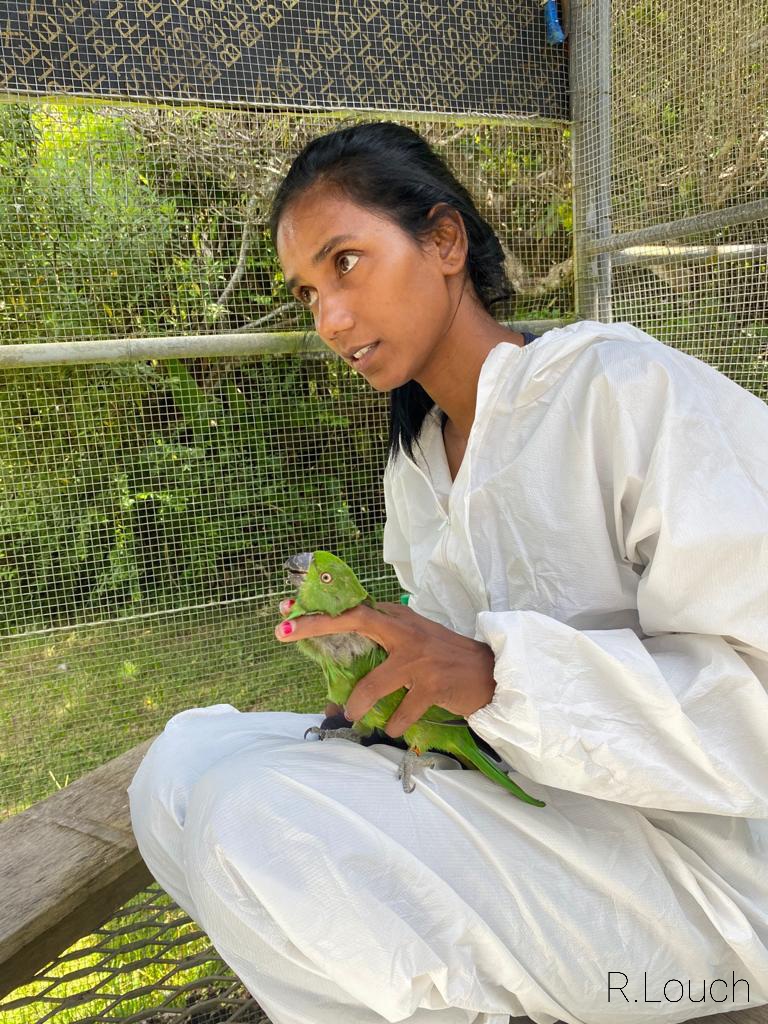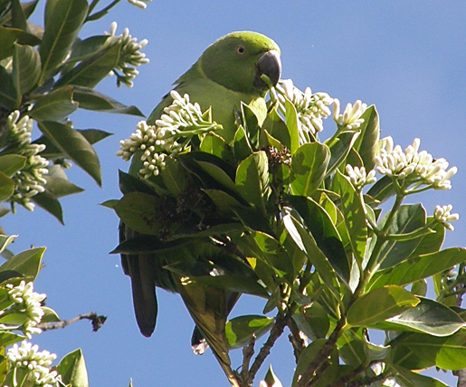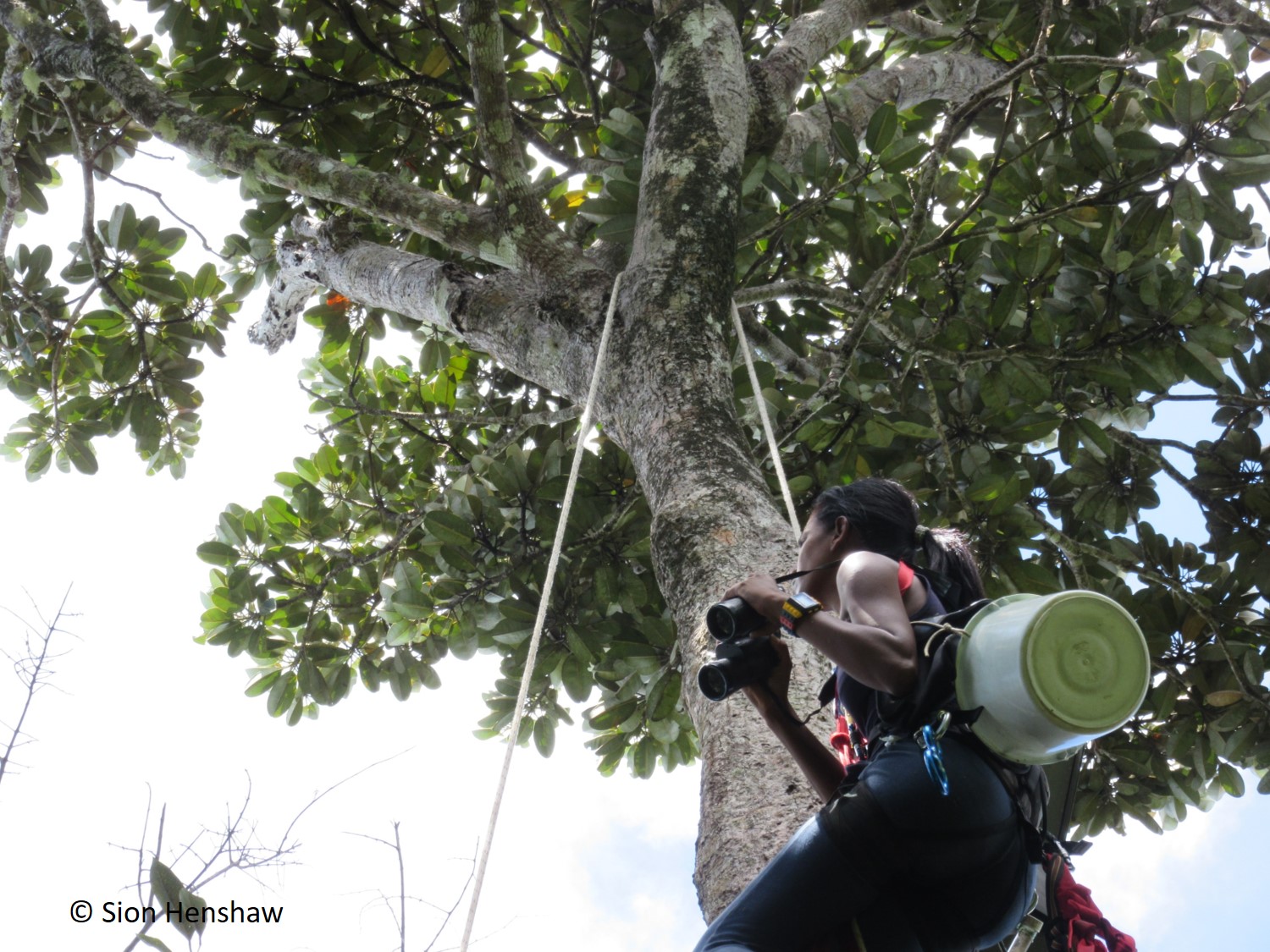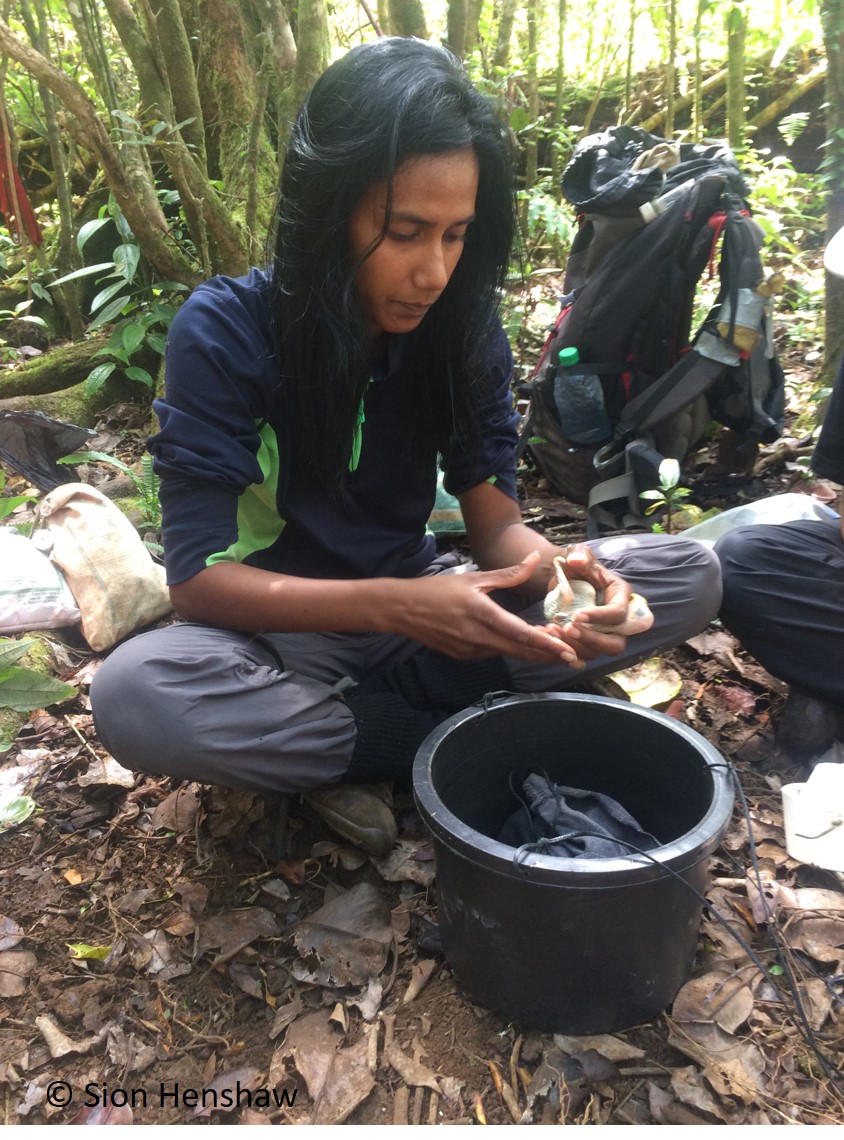Blog: Surviving and Thriving During a Pandemic
-
-
Surviving and Thriving During a Pandemic: Q & A with Durrell Alumni, Vanousha Pillay
In July 2021, we caught up with Vanousha Pillay, Senior Field Staff member at the Mauritian Wildlife Foundation, recent graduate of DESMAN 2020, and recipient of the Carl Jones Scholarship Fund. We asked her about her personal experience of continuing to work in a field-based role during the height of the pandemic, how she has survived and how it sparked her passion to thrive in conservation!

In early 2020, lives changed rapidly across the world as we were suddenly faced with a global pandemic. For some, these changes have been relatively simple; shifting meetings onto zoom and turning bedrooms into offices. For others, it’s been a time to rethink career paths, taking a leap of faith to pursue a true passion. For the majority, it has been unbelievably difficult and for those working in conservation – an already challenging job! – drawing upon creativity, optimism and resilience has been essential. These three precious qualities are at the heart of Durrell alumni working with, and for, wildlife, and we have been eager to share the recent experiences of our remarkable Alumni.
Durrell: In the last year, have you been able to keep on working fairly normally ?
Vanousha: International restrictions on travel because of the COVID-19 outbreak meant it was not possible to recruit the usual contingent of expatriate volunteers – this meant that our team was smaller than usual. The breeding season was a lot harder with a smaller team, but we were really glad to have been able to continue all of the work. We were out in the field, still keen to monitor the Echo Parakeets, and we managed to ring over 90% of the chicks that hatched. We monitored all ~180 known breeding sites; over 400 eggs were laid, over 290 chicks hatched and 156 breeding attempts were made. This is a long running project, and so we worked hard to continue the data collection and to support our birds.
Photo right: Vanousha handling a one year old parakeet.
Durrell: What has been the hardest challenge for you either personally or professionally?
Vanousha: One of the hardest things was taking on more responsibilities, I had to learn a lot more, and quickly, and I have had to do a lot more work on my own which has been very challenging. This is a positive because, it has really challenged me personally and professionally and therefore, I’ve really learned so much, not even just in terms of the Echo Parakeet and the project, but also how to work under pressure while staying focused and positive. Everyone has been experiencing COVID-19 in a different way. Since the lockdown in Mauritius, I’ve been working on the electronic data sets of the Echo Parakeet at home and on top of this, I have been spending more time with my family as I normally stay out in the field (the Black River Gorges National Parks, Mauritius) from Monday to Saturday.
Durrell: What do you feel have been the ‘silver linings’ you experienced this year?
Vanousha: After the second national lockdown in Mauritius in March 2021, I had to work on data management alone. Working without having a team around me for support and advice was challenging, but it helped me build confidence in my abilities and I have learnt new skills that will help me in my work.


Photo far left: Vanousha learning how to rings a one year old echo parakeet chick. Photo middle: A female echo parakeet feeding on the leaves and flowers on native plants. Photo far right: Vanousha at work in the field aiming to identify the uniquely ringed breeding pair occupying the nest.
Durrell: In Spring 2020 you attended the DESMAN course in Jersey. This course is a challenge in itself! Do you think it helped to prepare you for surviving this very unusual year?
Vanousha: Yes, definitely. Attending DESMAN helped improve my personal strength and built-up my confidence. Even on return to Mauritius, having the support and mentorship of the management staff at Durrell was a plus for me, and highlighted the value in building good networks and making the most of friends and colleagues both near and far.
Durrell: What is one thing you can’t wait to return to normal?
Vanousha: I am looking forward to getting back to working 'normally' in the field and being back with nature! I also can’t wait to spend more time with my family when restrictions are eased - I am sure many people feel the same.
Durrell: What do you hope to be different because of the world’s recent changes in lifestyle?
Vanousha: I hope that people can see the importance of saving our beautiful endemic forest in Mauritius, help to preserve it and maintain a sustainable forest so that everyone can enjoy its flora and fauna. I hope they have connected more with nature during lockdown, are inspired by it and want to care for it.
 Vanousha participated in the Durrell Endangered Species Management Graduate Certificate (DESMAN) course, which is designed to equip conservation professionals with a complete toolbox of skills to help manage or participate in conservation projects. The training provides a broad range of current conservation theory, practical and specific skills in endangered species management, and a range of transferable expertise in conservation management, leadership, communication and fundraising. Click here https://bit.ly/2SSAJJU for more information about the course and other personal and professional training opportunities.
Vanousha participated in the Durrell Endangered Species Management Graduate Certificate (DESMAN) course, which is designed to equip conservation professionals with a complete toolbox of skills to help manage or participate in conservation projects. The training provides a broad range of current conservation theory, practical and specific skills in endangered species management, and a range of transferable expertise in conservation management, leadership, communication and fundraising. Click here https://bit.ly/2SSAJJU for more information about the course and other personal and professional training opportunities.
Durrell has a rich history of working along-side the Mauritian Wildlife Foundation since it was first established in the 1970s. If you would like to learn more about the wide range of species and habitat restoration programmes managed by the organisation, how you can help, volunteer or even work for MWF, then visit their official website for the latest project updates and upcoming opportunities.
Photo left: Having accessed a nest and carefully extracted the chicks, Vanoushsa checks their body condition and general health to maximise the long term survival and success of this once Critically Endangered parakeet.
-